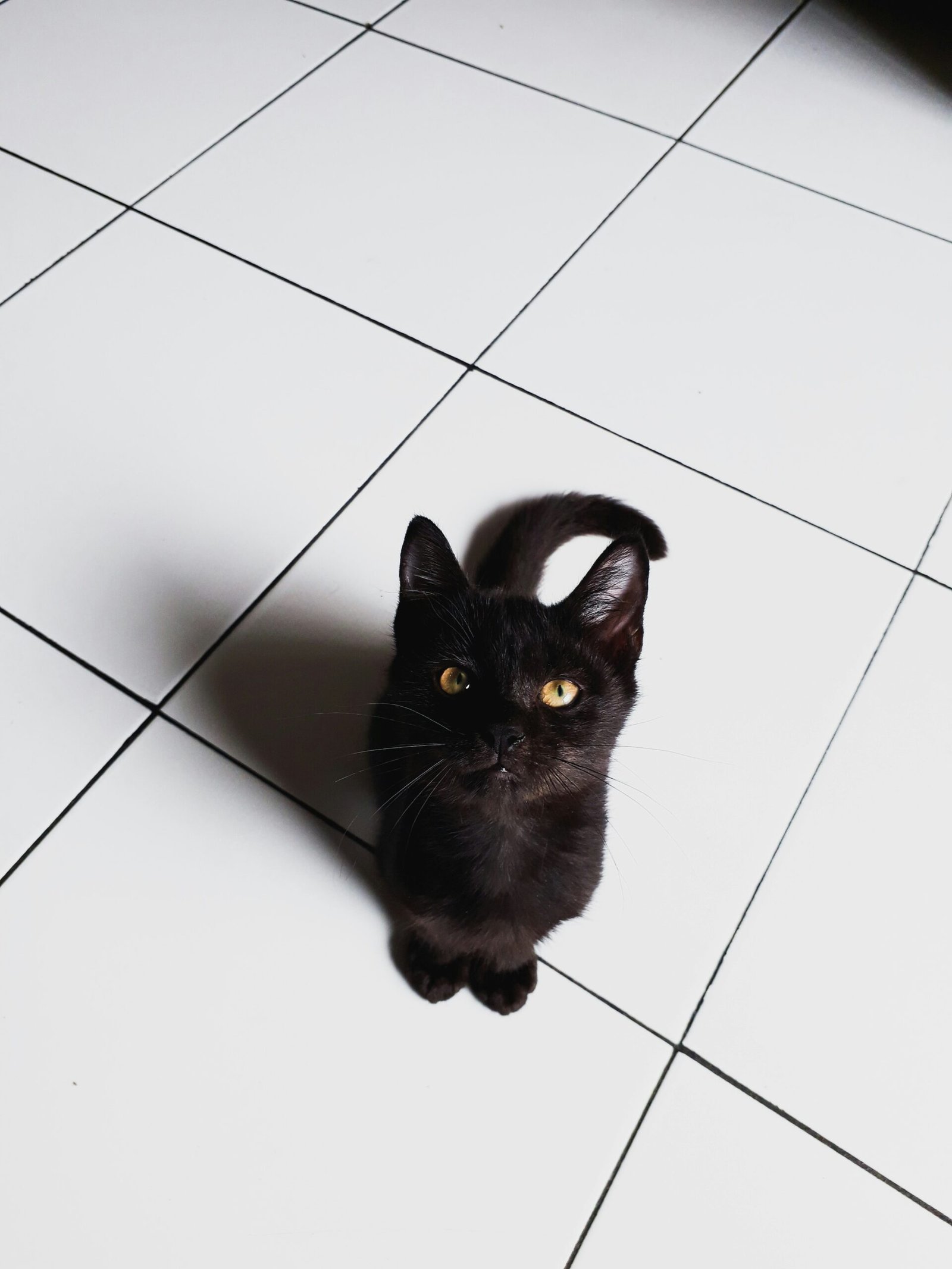
The Cultural Significance of Black Cats
Black cats have occupied a fascinating place in various cultures throughout history, often embodying a duality of symbolism that contrasts superstition with cultural reverence. In many Western societies, black cats have been historically associated with witchcraft and misfortune. The belief that black cats are witches’ familiars, serving as their aides in magical endeavors, has significantly influenced public perception. This notion intensified during the Middle Ages when fear of witches led to widespread superstitions surrounding these enigmatic felines. Indeed, many believed that encountering a black cat would result in bad luck or misfortune.
Conversely, it is important to recognize that other cultures view black cats in a more favorable light. In ancient Egypt, black cats were revered and often associated with the goddess Bastet, a protector of the home and symbol of fertility and motherhood. The Egyptians believed black cats brought good fortune and warded off evil spirits, leading to their integration into homes and households. Similarly, in Japanese culture, the “maneki-neko,” or lucky cat, sometimes appears with a black coat, embodying protection and prosperity.
The juxtaposition of these perceptions reveals how societal attitudes toward black cats can vary drastically. In some regions of the world, the presence of a black cat is believed to signify good luck and prosperity. In Scottish folklore, it is thought that a black cat arriving at a home denotes wealth and blessings to come. While their negative associations persist in many parts of the world, growing awareness and changing attitudes are increasingly embracing the positive attributes linked to black cats.
Understanding the cultural significance of black cats allows for a more nuanced view of their role in human society. By unpacking centuries of folklore and myth, we can comprehend how these beliefs have evolved and continue to shape the public’s perception of black cats today.
Myths and Misconceptions About Black Cats
Throughout history, black cats have been enveloped in a shroud of myths and misconceptions that have often led to their unwarranted stigmatization. One of the most pervasive beliefs is that black cats bring bad luck, particularly when they cross one’s path. This superstition has roots in medieval Europe where black cats were associated with witches and other dark forces. However, studies indicate that in many cultures, such as in Japan and parts of Britain, black cats are viewed as symbols of good fortune, highlighting the arbitrary nature of these beliefs.
Another common misconception is that black cats are less affectionate or friendly compared to their differently colored counterparts. In reality, a cat’s temperament is influenced more by genetics, environment, and individual personality rather than its fur color. Research shows that black cats tend to have just as much capacity for love and companionship as any other feline. They are affectionate, social, and can bring joy and comfort to any household.
One significant impact of these myths is seen in animal shelters where black cats are often overlooked for adoption. Data suggests that they face lower adoption rates, frequently remaining in shelters longer than cats of other colors. This bias against black cats is driven by cultural stereotypes rather than factual evidence of their worthiness as pets. Many organizations are working to debunk these misconceptions by launching campaigns that highlight the uniqueness and charm of black cats, aiming to foster a more positive perception.
Educating the public about these myths is essential for changing perceptions. By dispelling these fallacies, we can encourage more people to consider giving a loving home to black cats, demonstrating that they are deserving of the same affection and care as any other pet. Understanding these myths can lead to a more empathetic view, ensuring that these cats are recognized for their individual personalities rather than judged by their coat color.
Health and Care: Is a Black Cat Different?
When it comes to the health and care of black cats, there is often a misconception that they have unique needs compared to other felines. In reality, the fundamental health requirements of black cats do not differ significantly from those of cats of other colors. However, awareness of a few specific considerations can enhance the well-being of your beloved void kitty.
First and foremost, coat health is essential. The sleek, shiny coat of a black cat may be one of its most striking features, and maintaining this aesthetic requires regular grooming. While black cats are not prone to any specific coat issues, regular brushing can help reduce shedding and prevent hairballs, which are a common concern for all cats. It is also advisable to monitor their skin for any signs of irritation or parasites, given that darker fur can sometimes conceal these problems.
In terms of diseases, black cats are susceptible to the same health conditions that affect all domestic cats. However, certain studies suggest that they may have a lower incidence of certain illnesses, although further research is needed in this area. Routine veterinary care, including vaccinations, dental check-ups, and regular wellness exams, is crucial regardless of the cat’s color. Additionally, awareness of breed-specific conditions becomes important if the black cat is of a particular breed.
Nutritional needs for black cats align with those of other cats, focusing on high-quality, balanced diets that prioritize protein and essential nutrients. It is crucial to avoid overfeeding to prevent obesity, which can lead to a host of health problems. Adapting a diet based on age, health status, and activity levels may be beneficial. Overall, while there are no unique health conditions tied to black cats, proper care, regular veterinary visits, and balanced nutrition are key to ensuring they thrive.
Adopting a Black Cat: Tips and Considerations
Adopting a black cat can be a rewarding experience, but it is essential to approach the decision with careful consideration. One of the first factors to evaluate is whether your lifestyle is compatible with the needs of a cat. Cats, including black cats, often require a stable environment and ample time for social interaction. Assess your daily routine, work commitments, and whether you can provide the attention and care that a pet requires. Additionally, consider the potential long-term commitment, as cats can live for 15 years or more.
When looking to adopt a black cat, it is crucial to find a reputable shelter or rescue organization. These centers not only help in placing animals but also provide valuable insight into their behavior and health history. Ensure that you ask about the cat’s temperament, health status, and any special needs. Many black cats are often overlooked in shelters, making it all the more important to advocate for these animals. By adopting from a reputable source, you can ensure the well-being of your future feline companion.
Integrating a black cat into an existing household can take time and patience. Introduce the new pet gradually to avoid overwhelming either the new cat or your current pets. Create a designated space for the black cat equipped with food, water, and a litter box to help them feel secure in their new environment. Allowing them to explore at their own pace can help mitigate stress. Additionally, enriching the environment with toys and scratching posts can provide stimulation and help establish comfort.
Ultimately, adopting a black cat is an opportunity to experience the love and companionship these animals offer. The persistent superstitions associated with black cats often overshadow their affectionate and playful nature. By choosing to open your heart and home to a black cat, you embrace the chance to form a unique bond that transcends any misplaced notions about these magnificent creatures.
